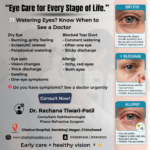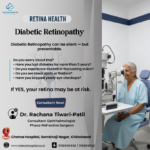Recovering from surgery is a critical phase that can determine the long-term success of your treatment. While the surgery itself is a significant milestone, the journey to full recovery continues long after you leave the operating room. Effective post-surgery rehabilitation is essential for regaining strength, mobility, and overall well-being. At Chetna Hospital, we understand that a well-structured rehabilitation plan can make all the difference in achieving a
faster, smoother recovery. Here’s how you can optimize your rehabilitation process and get back to your normal life with confidence.
Follow Your Doctor’s Instructions
Your recovery plan will be personalized based on the type of surgery you underwent. Adhering to your doctor’s instructions is crucial for a successful recovery. Make sure you understand and follow all guidelines regarding medications, wound care, and activity restrictions. For specialized advice, consult the best orthopedic doctor in your place.
Manage Pain Effectively
Pain management is a key component of post-surgery rehabilitation. Follow your doctor’s recommendations for pain relief. Whether it involves prescription medications or over-the-counter options, managing pain effectively will help you stay more comfortable and engaged in your recovery process. Don’t hesitate to report any uncontrolled pain to your healthcare provider.
Stay Active Within Limits
Gentle movement can significantly aid in your recovery. Engage in prescribed physical activities as soon as you’re able. Gentle stretching and walking can improve circulation and reduce the risk of complications. However, always stay within the limits set by your healthcare provider to avoid overexertion.
Prioritize Proper Nutrition
Nutrition plays a vital role in recovery. Prioritize a well-balanced diet abundant in vitamins and minerals to provide the essential nutrients necessary to support and accelerate the body’s natural healing processes. Protein-rich foods, like lean meats and legumes, help repair tissues, while fruits and vegetables provide essential nutrients. Maintaining proper hydration is equally crucial, so ensure you drink plenty of water consistently throughout the day to support bodily functions.
Keep the Surgical Site Clean
Proper wound care is essential to prevent infections. Follow the specific instructions given by your doctor regarding cleaning and dressing changes. Keep the surgical site clean and dry, and avoid any activities that could disrupt the healing process.
Incorporate Physical Therapy
Physical therapy can be a significant part of your rehabilitation. Your doctor may recommend specific exercises designed to restore function and strength. Adhering to these exercises can help you regain mobility more quickly and effectively. Consult with a licensed physical therapist to guide you through this process.
Get Plenty of Rest
Rest is crucial for your body’s healing process. Ensure you get adequate sleep each night and take naps if needed. Rest allows your body to repair itself and helps prevent fatigue. Create a comfortable and quiet environment to improve the quality of your sleep.
Monitor for Complications
Stay vigilant for any signs of complications, such as excessive swelling, fever, or unusual pain. Promptly report these symptoms to your healthcare provider to ensure timely assessment and intervention. Early detection of potential issues can prevent more serious complications and contribute to a smoother recovery.
Follow-Up Appointments
Keep all follow-up appointments with your healthcare provider. These visits are essential for monitoring your progress and making any necessary adjustments to your recovery plan. Your doctor will assess how well you’re healing and offer guidance on resuming normal activities.
Emotional Well-being
Recovery isn’t just about physical healing; emotional well-being is also important. It’s normal to feel frustrated or anxious during recovery. Consider talking to a mental health professional if you’re struggling with your emotional state. Support from family and friends can have a profound impact, providing comfort, encouragement, and assistance that significantly enhances your overall well-being.
Utilize Support Systems
Never hesitate to reach out and ask for help from family and friends. They can assist with daily tasks, provide transportation to appointments, and offer emotional support. Having a solid support system can make your recovery process more manageable and less stressful.
Gradually Resume Activities
As your strength and well-being improve, gradually reintroduce and resume your normal activities. Slowly reintroduce physical activities and monitor how your body responds. This approach helps prevent setbacks and ensures you’re ready for more demanding activities.
Seek Professional Advice
Finally, always seek professional advice if you have any concerns or questions about your recovery. Whether it’s from your surgeon, a physical therapist, or another healthcare professional, getting expert guidance ensures that you’re on the right track.
In conclusion, post-surgery rehabilitation requires careful attention and adherence to various guidelines. By following your doctor’s instructions, managing pain, staying active, and prioritizing your overall health, you can facilitate a speedy recovery. For personalized advice and expert care, consider consulting the best orthopedic doctor in PCMC at Chetna Hospital. Our orthopedic specialists are dedicated to supporting you through every step of your recovery journey.













